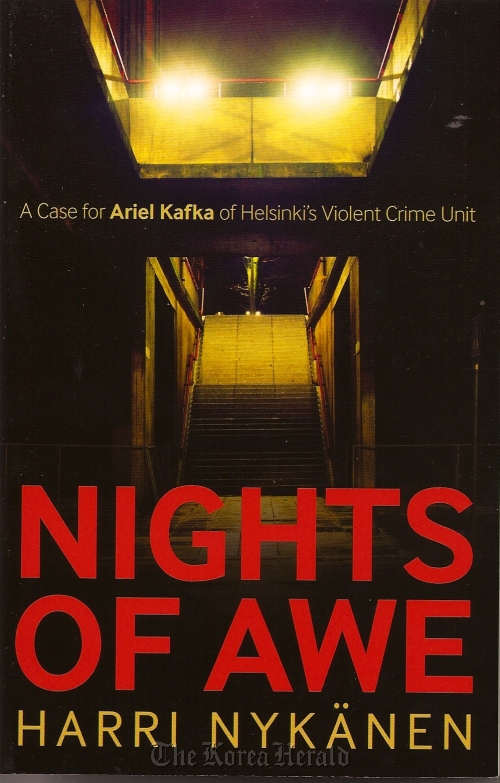
Nights of Awe
By Harri Nykanen, translated from the Finnish by Kristian London
(Bitter Lemon)
The protagonist of Harri Nykanen’s “Nights of Awe” is named Ariel Kafka, and he’s one of two Jewish police officers in Helsinki.
Now, Finland’s entire Jewish population is no bigger than a couple of good-sized Long Island bar mitzvahs, so it’s no shock that Jews would be somewhat exotic figures there. Nykanen has Kafka react with head-shaking amusement to well-meaning questions about Jews, and the deadpan humor is of a piece with what Nykanen did so well in “Raid and the Blackest Sheep,” the only previous book of his available in English.
Kafka’s Jewish identity figures also in the crimes that drive the story, a series of killings of Arabs that eventually involves drugs, trains, cars, Israeli diplomats, the Mossad intelligence service, and friends and others from Kafka’s own past. To say too much more would risk spoilers, except that things, as in all good mysteries, are not what they seem, even when you think you’ve figured out what’s what and who’s who.
And that’s where things get problematical. I can well imagine that the Mossad might find its way into a country in response to a political situation such as the one that lures them to Finland in this book. I’m not sure the stratagem by which they are drawn in is plausible, though. If one accepts it, then that part of the novel almost works as an examination of the moral, ethical and practical hazards of running intelligence operations.
But the book is at least as much character study as it is international thriller, and its second half is just an exploration of that tiresome question, “How can a people that has suffered so horribly turn around and itself be less than morally pure?” The answer, of course, is easy: that Jews are human. But the question might be new and unfamiliar in a country with such a small Jewish population.
Thus the setting during the Jewish High Holidays, the Days of Awe: The ethical quandaries the novel presents are supposed to be so pressing that even such a secularized Jew as Ariel Kafka is forced to think about sin and repentance. And Nykanen equips him well for deep, pivotal thinking. “Ariel” is Hebrew for “Lion of God,” and also a traditional name for Jerusalem. More resonance: One minor character’s name is an echo, conscious or otherwise, of the original, Arabic title of Maimonides’ “Guide for the Perplexed.”
Nykanen presumably intends moral weight, but a character named Kafka needs no help from the calendar to get introspective. The story could have been set anytime in the year.
Harri Nykanen is part of the blinding ice storm of Nordic crime writing that has buffeted the world since Stieg Larsson died and went to publishing heaven, but he stands out from the crowd for at least two reasons: his deadpan humor, and his thrilling ability to sustain narrative pace on little but routine details, personal interactions, and professional observations over the course of a police investigation. He’s a worthy successor in this respect to Maj Sjowall and Per Wahloo, the supreme and supremely influential masters of Scandinavian crime writing.
“Nights of Awe” was smoothly translated into English by Kristian London, an American who lives in Helsinki. The fluency of the translation is especially noticeable in the novel’s first half, where the prose, and not the action, must hold readers’ attention. (MCT)








![[Weekender] Korea's traditional sauce culture gains global recognition](http://res.heraldm.com/phpwas/restmb_idxmake.php?idx=644&simg=/content/image/2024/11/21/20241121050153_0.jpg)